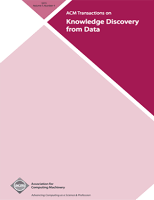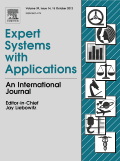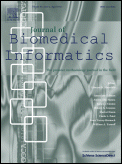
ACM Transactions on Knowledge Discovery from Data
Scope & Guideline
Unlocking Insights, Transforming Data into Knowledge
Introduction
Aims and Scopes
- Knowledge Discovery Techniques:
The journal prioritizes research on a wide range of knowledge discovery methods, including but not limited to data mining, machine learning, and statistical analysis, aimed at extracting actionable insights from large datasets. - Graph and Network Analysis:
A significant focus is placed on methodologies for analyzing and processing data represented as graphs or networks, exploring topics such as community detection, link prediction, and network dynamics. - Fairness and Ethical AI:
Recent publications show a growing emphasis on fairness in algorithms, addressing bias and ethical considerations in automated decision-making processes, which is crucial in the context of AI and machine learning. - Federated Learning and Privacy-Preserving Techniques:
The journal covers advancements in federated learning and privacy-preserving methods, highlighting the importance of data security and privacy in knowledge discovery. - Interdisciplinary Applications:
TKDD publishes work that spans various disciplines, showcasing applications of knowledge discovery in fields such as healthcare, social media, finance, and urban planning, demonstrating the versatility of data mining techniques.
Trending and Emerging
- Explainable AI and Interpretability:
There is a significant rise in research focusing on explainability and interpretability of machine learning models, driven by the need for transparency in AI systems, especially in sensitive applications such as healthcare and finance. - Dynamic and Temporal Data Analysis:
An increasing number of publications address challenges associated with dynamic and temporal data, reflecting the growing importance of time-series analysis and the need to model changes over time in various applications. - Causality and Causal Inference:
Emerging interest in causal inference methods signals a trend towards understanding relationships and effects rather than mere correlations, enhancing the applicability of knowledge discovery in real-world scenarios. - Data Privacy and Security:
With the rise of data privacy concerns, there is a growing emphasis on privacy-preserving data mining techniques and federated learning approaches that allow for collaborative analysis without compromising sensitive information. - Integration of Multi-modal Data Sources:
Research integrating various data types (text, images, time-series) is becoming more prevalent, reflecting the need for versatile approaches that can handle the complexity of real-world data.
Declining or Waning
- Traditional Statistical Methods:
There has been a decline in papers focusing solely on classical statistical methods for data analysis, as the field moves toward more complex machine learning and deep learning approaches. - Basic Clustering Techniques:
The frequency of papers presenting basic clustering algorithms has diminished, likely due to the emergence of more sophisticated and hybrid methods that better handle the complexities of modern datasets. - Simple Data Visualization Techniques:
Research dedicated to basic data visualization techniques has waned, as the community increasingly seeks advanced methods that incorporate interactivity and dynamic data representation.
Similar Journals

Frontiers of Computer Science
Unleashing Insights at the Crossroads of Theory and PracticeFrontiers of Computer Science is a leading peer-reviewed journal dedicated to advancing the field of computer science through the publication of high-quality research articles, reviews, and theoretical discussions. Published by HIGHER EDUCATION PRESS, this journal has gained significant recognition, currently boasting a prestigious impact factor and ranking in the Q1 quartile for both Computer Science (miscellaneous) and Theoretical Computer Science categories in 2023. With a focus on the intersection of computational theory and practical applications, it serves as a vital platform for researchers, professionals, and students alike who are eager to contribute to and stay updated with groundbreaking developments. The journal’s scope encompasses a wide range of topics, reflecting the diverse nature of computer science today. Operating from Beijing, China, it emphasizes Open Access, ensuring that vital research is readily available to the global academic community. With its convergence period spanning from 2013 to 2024, Frontiers of Computer Science remains committed to fostering innovation and scholarly dialogue that drives the future of technology.

EXPERT SYSTEMS WITH APPLICATIONS
Navigating the Future of Intelligent TechnologiesEXPERT SYSTEMS WITH APPLICATIONS is a premier journal published by PERGAMON-ELSEVIER SCIENCE LTD, dedicated to showcasing cutting-edge research in the fields of Artificial Intelligence, Computer Science Applications, and Engineering. With an esteemed Q1 ranking across multiple categories, this journal not only reflects high-quality scholarship but also plays a pivotal role in advancing the application of expert systems and intelligent technologies in various sectors. Operating from the United Kingdom, it features a wide range of insightful articles that address complex challenges and offer innovative solutions through interdisciplinary approaches. Researchers and practitioners can access invaluable resources to inform their work, contributing to the journal's strong reputation and growing readership. With its convergence of relevant technologies from 1990 to 2025, EXPERT SYSTEMS WITH APPLICATIONS stands as an essential source for those aiming to push the boundaries of knowledge in these thriving fields, making it a key platform for both established experts and emerging scholars.

Big Data Mining and Analytics
Pioneering Research in Data-Driven SolutionsBig Data Mining and Analytics, published by TSINGHUA UNIVERSITY PRESS, stands at the forefront of interdisciplinary research in the fields of Artificial Intelligence, Computer Networks and Communications, Computer Science Applications, and Information Systems. With an impressive Q1 ranking in multiple categories as of 2023, this journal serves as a critical platform for researchers and professionals eager to explore innovative techniques and methodologies related to big data analytics. Since its transition to Open Access in 2018, Big Data Mining and Analytics has aimed to increase the visibility and accessibility of its cutting-edge research, making permanent strides in the global academic landscape. Housed in Beijing, China, and actively embracing the converged years from 2018 to 2024, the journal aims to cultivate a rich discourse on emerging trends and applications, ensuring its relevance in a rapidly evolving technological environment. Join a vibrant community of scholars dedicated to advancing the frontiers of knowledge in big data.

Machine Learning and Knowledge Extraction
Connecting Minds to Foster Knowledge in Machine LearningMachine Learning and Knowledge Extraction, published by MDPI, is an esteemed Open Access journal that has been at the forefront of disseminating cutting-edge research since its inception in 2019. Based in Switzerland, this journal has established itself as a significant contributor to the fields of Artificial Intelligence and Engineering, currently ranking in the Q2 category in Artificial Intelligence and Q1 in Engineering (miscellaneous) for 2023. With a notable Scopus ranking, it holds the 35th position out of 204 in Engineering, placing it in the 83rd percentile, while it ranks 127th out of 350 in Computer Science, reaching the 63rd percentile. Machine Learning and Knowledge Extraction serves as a vital platform for researchers, professionals, and students alike, promoting insightful discussions, innovative methodologies, and profound discoveries in machine learning and data extraction techniques. The journal's open access model ensures that groundbreaking research is widely accessible, fostering collaboration and advancing knowledge across various disciplines.

Journal of Cheminformatics
Pioneering the integration of chemistry and technology.Journal of Cheminformatics, published by BMC, is a premier open-access journal that has been a cornerstone of cheminformatics research since its inception in 2009. With an ISSN of 1758-2946, this journal operates from the heart of the United Kingdom, providing a dynamic platform for disseminating high-quality, peer-reviewed articles that explore the integration of computer science with chemistry. The journal proudly stands in the prestigious Q1 category across multiple disciplines, including Computer Graphics, Computer-Aided Design, and Library and Information Sciences, showcasing its exceptional impact in the fields of cheminformatics and computational chemistry. Additionally, it ranks impressively in various Scopus categories, with notable placements such as #7 in Library and Information Sciences and #15 in Physical and Theoretical Chemistry, demonstrating its significance to the academic community. As a leader in open-access publishing, the Journal of Cheminformatics ensures that cutting-edge research and innovations are freely accessible to researchers, professionals, and students alike, fostering collaboration and advancement in this rapidly evolving field.

Communications for Statistical Applications and Methods
Bridging Theory and Practice in Statistical MethodologiesCommunications for Statistical Applications and Methods is a vital academic journal dedicated to advancing the field of statistics, with a particular focus on practical applications and methodologies. Published by the Korean Statistical Society, this journal has become a significant resource for researchers, practitioners, and students engaged in statistical sciences and its diverse applications in various fields including finance and modeling. Operating without an Open Access format, the journal is accessible through institutional subscriptions, allowing a broad audience to benefit from its insights. The journal covers works from its inception in 2017 to 2024, and although it currently ranks in the Q4 and Q3 quartiles across various mathematical and statistical categories, its commitment to quality research makes it a noteworthy platform for emerging trends and innovations. The journal not only serves to disseminate knowledge but also fosters collaboration among statisticians, ensuring that crucial advancements in statistical applications are communicated effectively.

SIAM Journal on Mathematics of Data Science
Elevating Data Science Through Rigorous Mathematical ApproachesSIAM Journal on Mathematics of Data Science is an esteemed publication within the fields of applied mathematics and data science, published by SIAM PUBLICATIONS. This journal serves as a vital platform for researchers and practitioners, dedicated to disseminating high-quality research that addresses complex mathematical problems arising in the context of data science. The journal aims to bridge the gap between rigorous mathematical theory and practical applications, fostering interdisciplinary collaboration among mathematicians, data scientists, and statisticians. With its commitment to excellence, the SIAM Journal on Mathematics of Data Science contributes significantly to advancing the understanding and development of mathematical methodologies that analyze and interpret large datasets effectively. Researchers and professionals will find it an invaluable resource with its comprehensive articles, insightful reviews, and original research papers, which represent the forefront of innovative mathematical approaches in the evolving landscape of data science. For those interested in contributing to this dynamic field, the journal provides an array of access options tailored to diverse audiences.

Advances in Data Science and Adaptive Analysis
Driving Excellence in Adaptive Analysis and Methodologies.Advances in Data Science and Adaptive Analysis is a prestigious journal dedicated to the advancement of knowledge within the rapidly evolving fields of data science and adaptive analysis. Published by WORLD SCIENTIFIC PUBL CO PTE LTD, this journal aims to serve as a platform for researchers, professionals, and students to disseminate innovative findings and methodologies. With a focus on interdisciplinary approaches, it invites contributions that explore the application of adaptive techniques in tackling complex data-driven challenges. Situated in Singapore, the journal stands out for its commitment to high-quality research, making significant impacts in the academic community and beyond. Although the journal currently does not offer open access, it remains a crucial resource for those striving to push the boundaries of data science research and its practical applications.

JOURNAL OF BIOMEDICAL INFORMATICS
Pioneering research at the crossroads of technology and medicine.JOURNAL OF BIOMEDICAL INFORMATICS, published by Academic Press Inc. Elsevier Science, is a premier peer-reviewed journal dedicated to the integration of computer science and health informatics to advance the field of biomedical engineering and healthcare. With its ISSN 1532-0464 and E-ISSN 1532-0480, this influential journal has established itself with an impressive impact factor, reflecting its high-quality research contributions. Recognized within the top quartile (Q1) of both Computer Science Applications and Health Informatics for 2023, the journal ranks #135 out of 817 in Computer Science Applications and #25 out of 138 in Health Informatics according to Scopus metrics. Offering open access options, it fosters extensive dissemination and accessibility of groundbreaking research findings to the scientific community. As a scholarly platform from 2001 to 2024, it is engineered to cater to the educational needs of researchers, professionals, and students, promoting innovative studies that bridge the gap between technology and healthcare.

Data Science and Engineering
Empowering innovation through data-driven research.Data Science and Engineering is a premier open access journal published by SPRINGERNATURE, dedicated to advancing the fields of data science, artificial intelligence, computational mechanics, and information systems. Since its inception in 2016, this journal has rapidly established itself as a leader in the academic community, boasting an impressive Q1 ranking in multiple computer science categories, including Artificial Intelligence, Software, and Information Systems. With a commitment to disseminating high-quality research, it caters to a diverse audience of researchers, professionals, and students eager to explore the intersection of data and technology. The journal's robust global reach, combined with its respected reputation, empowers authors to share their findings widely, facilitating breakthroughs and innovations across the digital landscape. Join the vibrant community of scholars contributing to this integral field of study, and stay informed with the latest research by accessing the journal freely online.